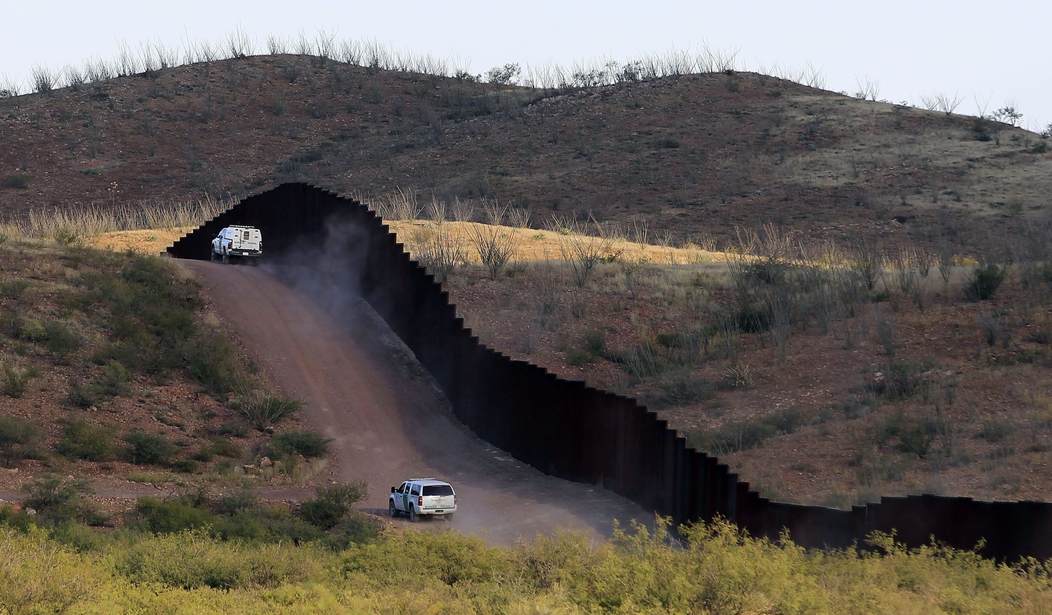A Brazilian-based smuggling network has been helping illegal immigrants from the Middle East cross the Southern border — and in one case, an Afghan man was found to be part of a terrorist plot in North America, the Washington Times reported Thursday evening. The network has helped smuggle at least a dozen Middle Eastern men into the United States, according to internal government documents reviewed by the Times.
Those smuggled included Palestinians, Pakistanis and the Afghan man who Homeland Security officials said had family ties to the Taliban and was “involved in a plot to conduct an attack in the U.S. and/or Canada.” He is in custody but the Times is withholding his name at the request of law enforcement to protect ongoing investigations.
Some of the men handled by the smuggling network were nabbed before they got to the U.S., but others actually made it into the country, including the Afghan man who was part of a group of six from so-called “special interest countries.”
The group, guided by two Mexicans employed by the smuggling network, crawled under the border fence in Arizona late last year and made it about 15 miles north before being detected by border surveillance, according to the documents, which were obtained by Rep. Duncan Hunter, California Republican.
Law enforcement asked The Times to withhold the name of the smuggling network.
Last December, Judicial Watch reported that the six men —one from Afghanistan, the other five from Pakistan—were arrested in nearby Patagonia, a ranch town 20 miles north of the Mexican border city of Nogales.
Federal authorities have confirmed the November 17 arrests and a local news outlet published a story that includes an official statement from the Border Patrol. Special Agent Kurt Remus in the Federal Bureau of Investigation’s (FBI) Phoenix headquarters told JW that the agency’s Joint Terrorism Task Forces vetted and interviewed the six men and determined that there were “no obvious signs of terrorism” so they were returned to Immigration and Customs Enforcement (ICE) custody.
The Afghan man told the Border Patrol that his group had crawled under the border fence near Nogales. All six men went on to make asylum claims. Rep. Hunter said “his understanding is that the five men from Pakistan were released based on those claims, and have disappeared.”
According to documents viewed by the Washington Times, the Border Patrol didn’t immediately spot the Afghan man’s terrorist ties because the first database agents checked didn’t list him. They made the discovery after checking the the FBI’s Terrorist Identities Datamart Environment database, which revealed he had “suspect relations.”
“It’s disturbing, in so many ways,” said Joe Kasper, Mr. Hunter’s chief of staff. “The interdiction of this group validates once again that the southern border is wide open to more than people looking to enter the U.S. illegally strictly for purposes of looking for work, as the administration wants us to believe. What’s worse, federal databases weren’t even synched and Border Patrol had no idea who they were arresting and the group was not considered a problem because none of them were considered a priority under the president’s enforcement protocol. That’s a major problem on its own, and it calls for DHS to figure out the problem — and fast.”
Mr. Hunter wrote a letter to to Homeland Security Secretary Jeh Johnson this week demanding answers about the breakdowns in the process.
About two weeks after the November 17 arrests, five Middle Eastern men — two of whom were carrying stainless-steel cylinders in their backpacks — were apprehended by the U.S. Border Patrol in an Arizona town about 30 miles from the Mexican border, Judicial Watch reported.









Join the conversation as a VIP Member